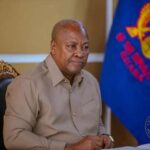Democracy is the norm across the continent, but soldiers are still seizing power
The coup is back in Africa. Last week, soldiers in Mali overthrew the unpopular president, Ibrahim Boubacar Keita, completing the west African country’s second coup in eight years. In Sudan, in April last year, after months of massive protests, the Sudanese military toppled the 30-year dictatorship of Omar al-Bashir. In 2017, a faction of Zimbabwe’s military ousted Robert Mugabe, who had ruled and misruled the former southern African breadbasket for 37 years.
This is not a return to the past. Before a wave of African democratisation in the 1990s, coups were as common as military dark glasses. Now they are far less frequent, and no longer acceptable in polite circles. Coups are routinely condemned by elected leaders (who rather fancy staying in power) and by institutions such as the African Union.
That is why, in all three recent “military assisted transitions” – as the perpetrators would have them – soldiers have bent over backwards to deny that a coup has taken place at all.
In Zimbabwe, the spokesman for the generals who toppled Mugabe proclaimed on television: “We wish to make it absolutely clear that this is not a military takeover” – a statement somewhat undermined by the armoured vehicles on the streets. Instead of executing Mugabe or bundling him on a plane into exile, he was placed under house arrest until he saw the wisdom of resignation. Something similar happened this month in Mali.
The president was arrested and persuaded to resign. As he put it in a broadcast: “Do I really have a choice?” With a gun to your head, the answer is generally no. In Sudan, the no-coup fiction was more convincing. The toppling of Bashir was preceded by waves of protests in which millions of Sudanese in dozens of cities took to the streets demanding he must go.
The generals who shoved Bashir out, many of them former close allies, presented their actions as the culmination of a popular revolution. That is a second feature of recent coups. They are popular, at least initially.
Last week’s putsch in Mali was foreshadowed by demonstrations, including by impoverished widows of soldiers who died fighting the jihadist insurgency. The president had been elected by a landslide in 2013. But by 2020, most Malians were weary of a government that had failed to bring either economic progress or peace. In Zimbabwe, the overthrow of Mugabe was more popular still.
As he tendered his “resignation”, hundreds of thousands took to the streets of Harare to celebrate, albeit sanctioned by the generals and supplied with anti-Mugabe placards. In Sudan, in scenes of jubilation, huge crowds chanted the praises of their “people’s uprising”. Paradoxically, the return of the coup is the flipside of more entrenched democratic norms. Across the continent, regular elections are now standard. But leaders have become adept at manipulating the democratic process and at tweaking the constitution to extend their rule.
Nic Cheeseman, a political scientist at the University of Birmingham, wrote the manual in 2018, How To Rig an Election. Both Mugabe and Bashir were experts. Four years before he was dragged away in handcuffs, 94 per cent of Sudanese voters supposedly endorsed Bashir’s presidency.
Many of the continent’s “longest-serving” leaders, including Uganda’s Yoweri Museveni (34 years in power) and Cameroon’s Paul Biya (45 years and counting) have been periodically, if dubiously, endorsed at the ballot box. When democracy is so blatantly fixed, it becomes plausible for soldiers to seize power in the name of restoring – not rupturing – the democratic contract. Recent coups come amid a strengthening of civil society.
An increasingly urban, social-media savvy and politicised young population has come into conflict with often ageing leaders who cannot meet their aspirations. Protests have sometimes catalysed peaceful change. In Ethiopia, years of demonstrations forced the resignation of one prime minister in 2018 and the selection by an embattled ruling elite of Abiy Ahmed, the Nobel Peace Prize-winner, as a hoped-for acceptable alternative. But protests have also emboldened the military to act.
Popular unrest formed the backdrop to army-controlled transitions in Algeria last year, as well as in Mali and Sudan. It must be acknowledged that coups in Africa are now rare. Many countries have robust democracies.
Ghana, once used to military rule, has held seven back-to-back democratic elections since 1992. Nations from Senegal to South Africa have no history of military takeover. Even Nigeria, once a byword for coups, has been democratic for more than two decades.
Still, there are dangers. One coup tends to lead to another. Mali is on its second and there are already rumours of disgruntled army officers gunning for Mugabe’s brutal and ineffective successor, Emmerson Mnangagwa. And, once in power, soldiers may get a taste for it.
Ominously, Mali’s putschists are talking about a three-year transition. In Sudan, civilians are part of a sovereign council that is supposed to organise multi-party elections in 2022. But the leadership includes generals with unsavoury pasts, and there can be many a slip between cup and lip. “We have to call a spade a spade,” says Mr Cheeseman.
“If the military takes over, even if they don’t shoot the leader, that’s still a coup.”
Source: Financial Times














